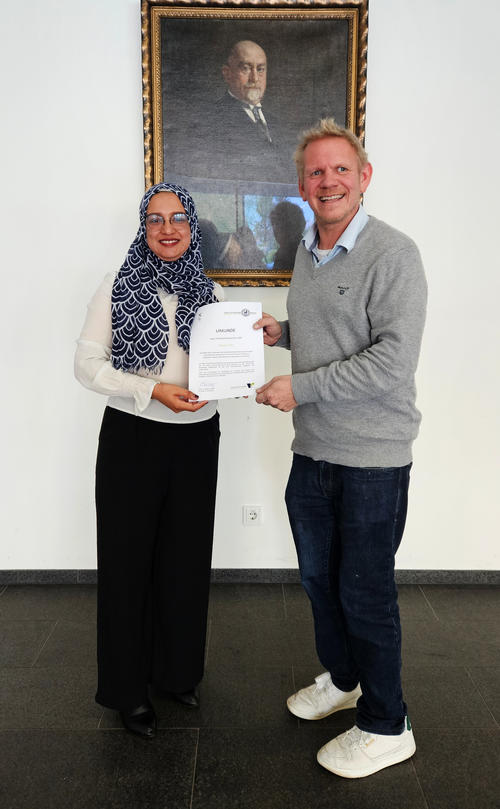November 2023 – Khawla Elati
Journal: Scientific Reports
Khawla Elati: PhD student at Institute for Parasitology and Tropical Veterinary Medicine Freie Universitaet Berlin, working under the supervision of Prof. Ard Nijhof on artificial feeding of Hyalomma ticks and study of Theileria annulata life cycle
The paper titled “Dual RNA‑seq to catalogue host and parasite gene expression changes associated with virulence of T. annulata‑transformed bovine leukocytes: towards identification of attenuation biomarkers” was published online on 24th October 2023 in Scientific Reports journal with an impact factor of 4.6.
The objective of the paper is the identification of potential attenuation markers of Theileria annulata parasite (causative agent of tropical theileriosis (TT) in cattle). The attenuation phenotype is obtained after long term passaging (2 years) of T. annulata schizont infected cell lines which can be used to immunize the cattle against TT, but the mechanisms underlying the parasite attenuation are still not entirely known
Attenuation is usually assessed in vivo by the inoculation of schizont-infected cells in calves. A cell culture is considered to be attenuated if the calves do not develop clinical signs and schizonts and piroplasms cannot be detected. This evaluation process is cumbersome and requires the use of experimental animals which pose ethical concerns, so an in vitro alternative which could reduce the number of animals required for this process would therefore be prudent.
In this paper we conducted a comparative transcriptome between virulent and attenuated T. annulata parasites. We catalogued a number of differentially expressed host and parasite genes that might be associated with attenuation which needs further investigations.
Such studies would contribute to a better understanding of the mechanism driving attenuation, reduce the time needed to establish an attenuated cell line and contribute to the application of 3Rs principle in Theileria research by reducing the number of animals required for the validation of attenuation.
